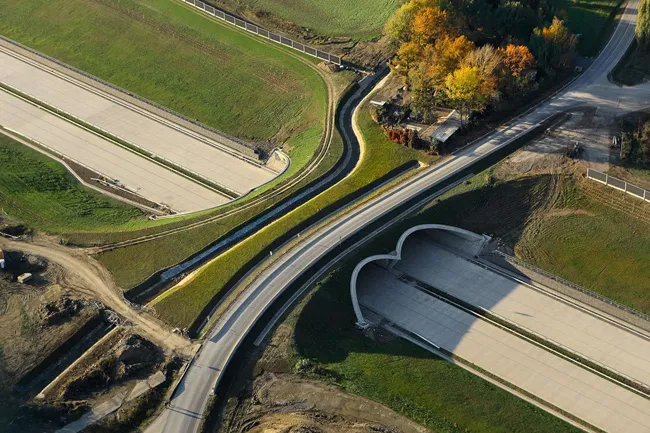
Czech Transport Ministry has advanced four out of seven consortia for a €975 million D4 motorway contract between Příbram to Písek.
When signed, the 32km 25-year design-build-finance-operate contract will be the first of what the Czech government hopes will be more public-private partnerships.
A
The third is that of DIF Infra 5 Participations, Acciona Concessiones and John Laing Investments. The fourth is a consortium of Porr, Obrascon Huarte, Egis Projects and
Negotiations with the four consortia will start at the beginning of next year with the winner to start construction in 2020 and manage the motorway for 25 years.
The three rejected companies were FCC Conessiones of Spain, Pan-Mediterranean Engineering of Israel and IC Ictas Insaat Sanayi of Turkey.
Transport Minister Dan Ťok said his ministry will meanwhile move quickly as possible to obtain all essential rights of way for the D4 section route. He will also assess risks for the public and private sectors for when the ministry starts competitive dialogue with the eventual winner.
Tok also defended the use of PPP for the Příbram to Písek D4 work. "In the three-to-six year horizon, European funds for construction of motorways will be significantly reduced.
“Therefore, we need to prepare for other funding models, such as public-private partnerships. In the future, we would like to use this way in the sections where we have a complete zoning permits for the stretch of motorway of at least 30km. For example, the D6, D35 or Central Bohemia part of D3," he said.
The government recently said that 177km of motorway is under construction and €3.32 billion has been earmarked for construction of new motorway sections and railway improvements. Around a quarter of the money will likely come from European Union sources.






